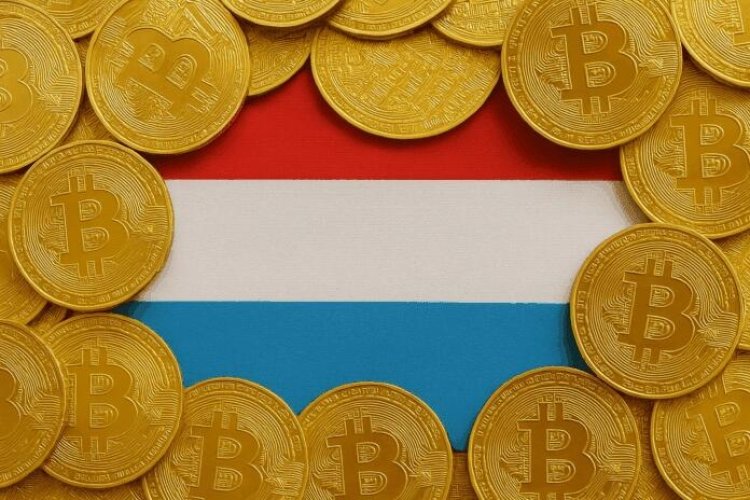Luxembourg Joins the Ranks of Governments Investing in Bitcoin

Luxembourg has officially entered the ranks of governments investing in Bitcoin, with its sovereign wealth fund announcing a new allocation into crypto assets. As part of the 2026 national budget presentation, Finance Minister Gilles Roth revealed that the Intergenerational Sovereign Wealth Fund (FSIL) will allocate 1% of its total portfolio valued at over €7 million to Bitcoin and other digital assets. The investment will be made through regulated Bitcoin exchange-traded funds (ETFs), rather than direct crypto holdings, making Luxembourg the first Eurozone nation to integrate Bitcoin into a sovereign investment portfolio in this manner.
The announcement marks a significant milestone in Europe’s evolving financial landscape, as governments begin treating Bitcoin less as a speculative gamble and more as a legitimate long-term asset. CSV lawmaker Laurent Mosar celebrated the move, calling it “great news for crypto-assets,” and emphasizing its symbolic importance in legitimizing digital assets at the institutional level.
As of June 30, 2025, the FSIL managed $887 million in assets, primarily distributed across investment-grade bonds (53%) and index funds (46%), with less than 1% in cash. The new 1% allocation to Bitcoin ETFs is expected to result in around $9.5 million in crypto exposure, based on current fund levels. Bob Kieffer, Director of the Luxembourg Treasury, confirmed the details in a post published Wednesday, clarifying that the investment comes after a revised government policy approved in July 2025, which permits up to 15% of FSIL assets to be allocated to “alternative investments,” including private equity, real estate, and digital assets like cryptocurrencies.
Kieffer acknowledged the polarizing nature of the decision, noting that while some might argue the allocation is too conservative or poorly timed, the fund’s management board viewed it as a measured approach. “Some might argue that we’re committing too little too late; others will point out the volatility and speculative nature of the investment. Yet, given the FSIL’s particular profile and mission, the fund’s management board concluded that a 1% allocation strikes the right balance, while sending a clear message about Bitcoin’s long-term potential,” he said.
To mitigate operational risks, Luxembourg's investment will be made exclusively through ETFs rather than direct Bitcoin purchases. “To avoid operational risks, the exposure to Bitcoin has been taken through a selection of ETFs,” Kieffer added. These instruments offer institutional investors secure and compliant exposure to the asset class, without the need to custody or manage the coins directly.
The investment also dovetails with Luxembourg’s broader ambitions to position itself as a hub for digital assets and fintech within the European Union. The country has seen a surge in crypto firms registering under the EU’s MiCA (Markets in Crypto-Assets) regulation framework, which allows digital asset companies to operate across all member states under a single licensing regime. By becoming the first EU government to formally integrate Bitcoin exposure into a sovereign investment fund, Luxembourg is reinforcing its commitment to financial innovation and regulatory leadership in the digital economy.
Globally, Luxembourg joins a growing list of governments and state-backed institutions exploring Bitcoin. Norway’s $1.9 trillion sovereign wealth fund indirectly holds around 11,400 BTC via public equity investments. In Asia and the Middle East, several sovereign funds are rumored to be conducting due diligence on crypto strategies. Meanwhile, central banks in Europe are warming to the idea as well; Finland and the U.K. have reported small Bitcoin holdings, while the Czech central bank is reportedly studying a potential €7 billion reserve diversification into Bitcoin.
What sets Luxembourg apart is the deliberate and strategic nature of its allocation. This is not a reactionary play on Bitcoin price speculation but a controlled experiment in portfolio diversification and digital asset integration. “Obviously, what’s right for the FSIL might not be right for other investors,” Kieffer said, “but this allocation sends a clear message about where we believe the future of finance is headed.”
As digital assets continue their evolution from fringe technology to institutional-grade investments, Luxembourg’s move could serve as a catalyst for further sovereign adoption across the EU. For now, the country has staked its position clearly: in a rapidly digitizing financial world, Bitcoin is no longer just an alternative it’s part of the future.























